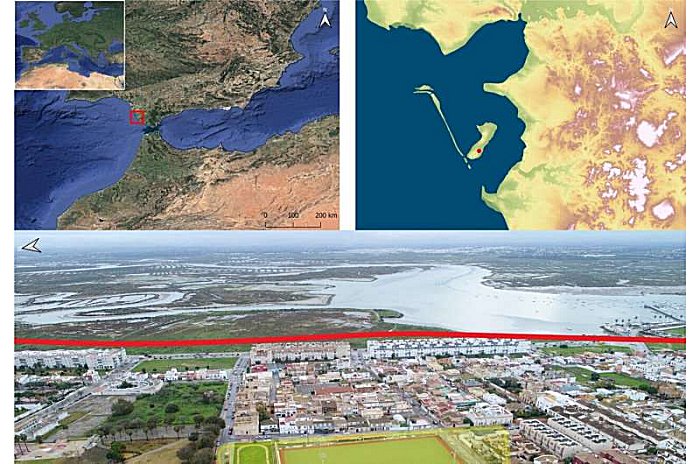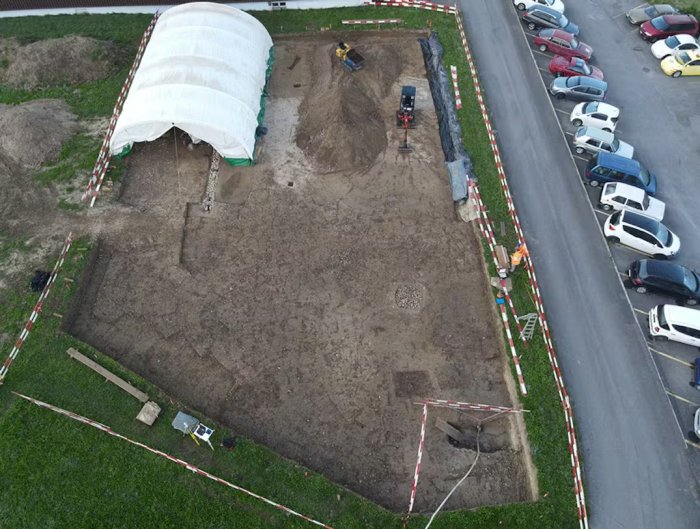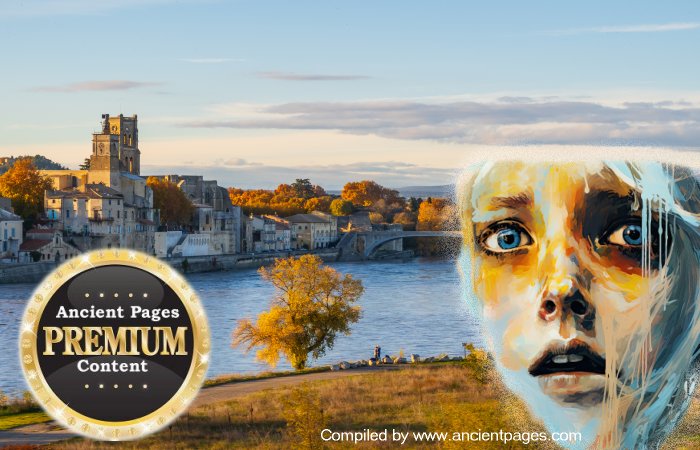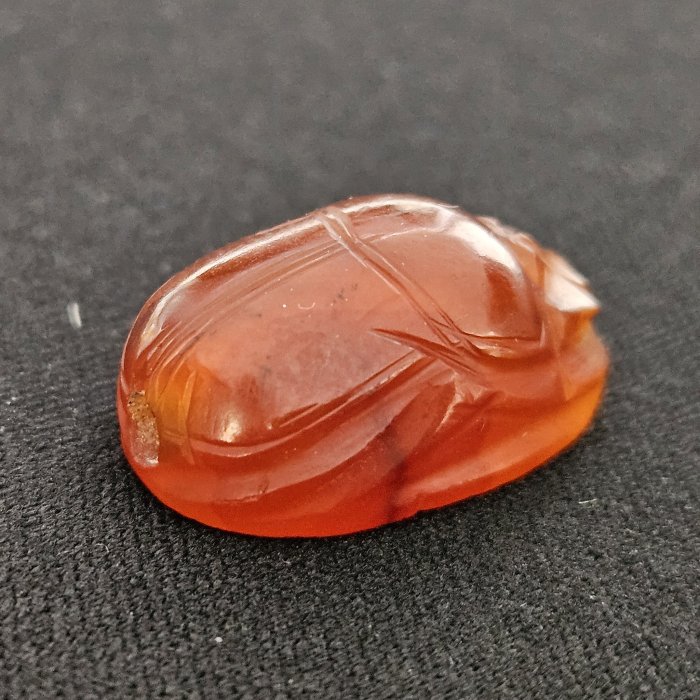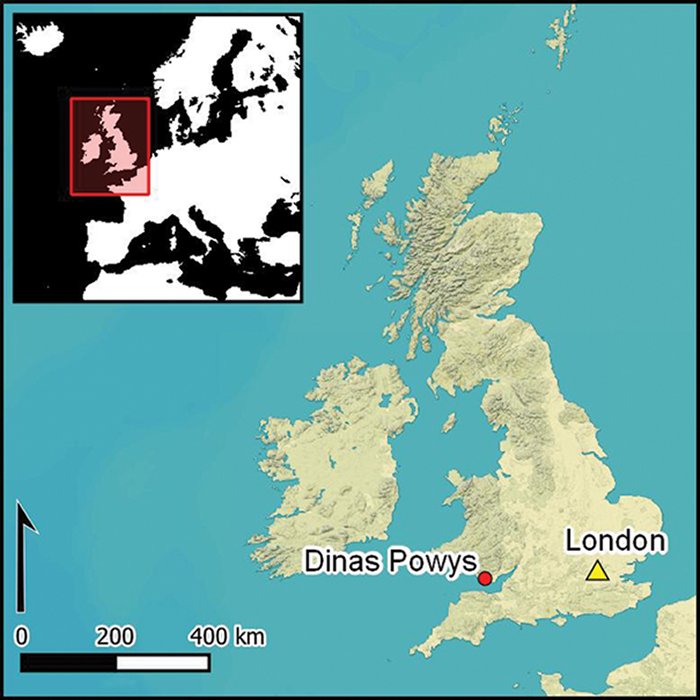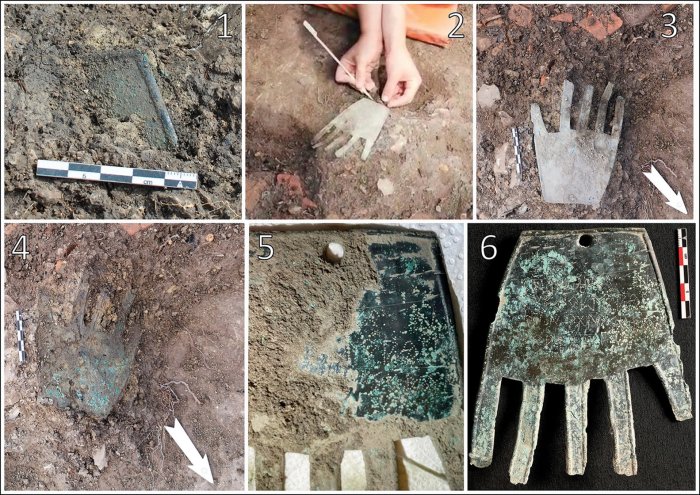Jan Bartek – AncientPages.com – As they watch the Olympic Games in Japan, a group of University of Toronto students is learning about the origins and historical significance of such athletic compeтιтions, which began almost 3,000 years ago.
The third-year course, offered by the department of classics in the Faculty of Arts & Science, is called Sport & Festival. It’s taught by PhD candidate Naomi Neufeld.
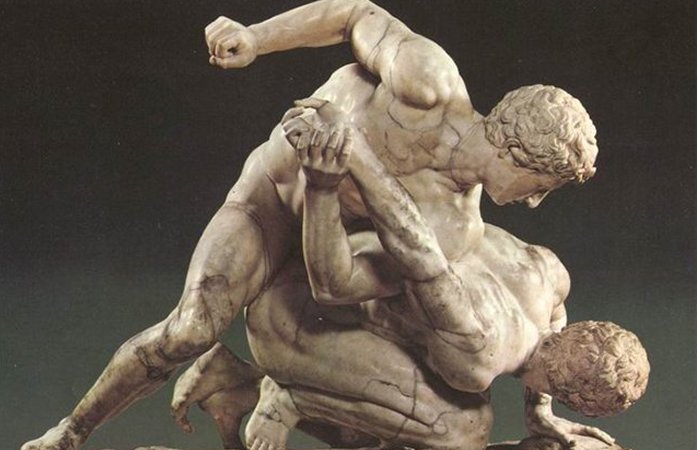
Credit: Квайтуджим, CC BY-SA 4.0
In the class, students explore the role of athletic contests and religious festivals in ancient Greek and Roman societies, examining the athletic events’ political, social and religious impacts.
“We look at the compeтιтors,” says Neufeld. “What is their social status? What political significance is behind hosting these games? What religious significance is there? We interrogate further for our understanding of the Greek and Roman world.
“I’m an archaeologist so context is everything. Without understanding the bigger pictures, you only get an isolated look.”
With the Olympic Games currently underway in Tokyo, there’s also discussion surrounding the compeтιтion’s ancient roots.
Compared to the ancient world, some Olympic events haven’t changed that much, though Greek athletes originally competed in all stadium events in the ɴuᴅᴇ.
“It was one of the most important elements of the games,” says Neufeld, noting that training and competing ɴuᴅᴇ was a source of pride. “In fact, the Greeks looked down upon those who exercised clothed as ‘barbarians.'”
Attire aside, many of the running races and other track and field events, as well as wrestling and boxing, remain relatively unchanged.
“They also had a sport called pankration, which was a mixture of boxing and wrestling,” says Neufeld – essentially a Greek version of mixed martial arts.
The first pentathlons included a running race length, discus throw, long jump, javelin throw and, finally, a wrestling match between the two top athletes in the previous events. Today’s pentathlon includes a very different format composed of pistol shooting, fencing, a swimming race, equestrian show jumping and a 3,200-metre cross-country run.
Few events brought people to their feet like the chariot races – so often celebrated in Hollywood movies. “In the ancient world, chariot races were one of the best and most exciting events,” says Neufeld.
Another similarity between the ancient games and today’s games? Different sports came and went over time.
In some of the early games, Greeks held a mule cart race called the apene, which were nowhere near as fast or flashy as horse chariot races. “This event fell out of favor during the Classical period,” says Neufeld.
There was also a race called the kalpe that involved compeтιтors riding a horse around a track for several laps and then dismounting and running the final lap on foot beside it.
There was a marked difference between the meaning of the games in ancient Greece and ancient Rome, explains Neufeld.
“In Greece, these games were exclusive to free Greek citizens,” she says. The athletes were of high social status, often considered the elite of society. And they proudly represented various city states known as a polis. Their success in the games was seen as representative of the polis’ ability to produce outstanding citizens. The Greeks also firmly believed that physical strength and a pleasing physical appearance represented strong character or ethos.
In Rome, the games had a different function. Athletic events were more of a spectacle than a compeтιтion – and became powerful political tools.
“Participants in these games were of low status,” says Neufeld. “The elite would watch them as a form of entertainment. And if politicians put on lavish games, they could get support for running for political office, or the emperor could get support of the people and appease them in times of trouble.”
It’s from such compeтιтions that the phrase “bread and circuses” was invented by the Roman satirist, Juvenal. The phrase means to generate public approval – not by excellence in public service, but by diversion or by satisfying the base needs of a population by offering food and entertainment.
Roman politicians generated plenty of support through events that featured the gladiators. But it wasn’t quite as Hollywood depicts, says Neufeld.
“The earliest games recorded in Roman history took place in conjunction with funeral events. As such, the violent sport has been interpreted as a type of ritual bloodletting to appease the ghosts of the departed,” says Neufeld. “And it wasn’t simply about brutal slaughter. That was reserved for public executions. Spectators wanted to see evenly matched opponents fighting with skill, endurance and forтιтude.
“If a defeated gladiator fought well and bravely, he could be spared.”
Despite the differences, athletic compeтιтions for both cultures had deep ties to religion.
“Greek athletic compeтιтions were held during religious festivals in honor of the gods and may have been seen as offerings to the deities,” says Neufeld. “Major games where Greek citizens of all poleis could gather together and compete were held in religious sanctuaries like Delphi and Olympia, where gods had temples and sacrifices could be made in their honor.”
In early Rome, victorious generals vowed to hold ludi (athletic games and chariot races) if the gods would grant him military success. “These games were then held as thanks to the deities,” says Neufeld.
Sarah Cᴀssidy, a fourth-year political science student at University College who is minoring in classics and sociology, says she is enjoying the course.
See also: More Archaeology News
“I wanted to learn more about the social lives of ancient Greeks and Romans,” she says. “We hear so much about the Olympics, chariot races and gladiators, but prior to this class, I really only had a general knowledge from media materials and culture. I wanted to delve deeper and learn more about the lesser-known festivals and the impacts these events had on the lives and history of the ancients.
“I didn’t expect to learn how important these festivals were to not only the citizens and cities, but how necessary they were in protecting, expressing and maintaining Greek and Roman idenтιтies.”
Written by Jan Bartek – AncientPages.com Staff Writer
